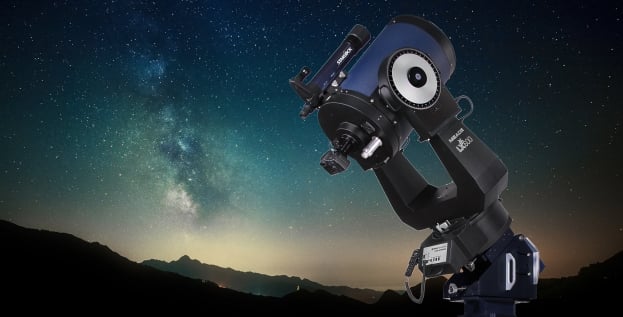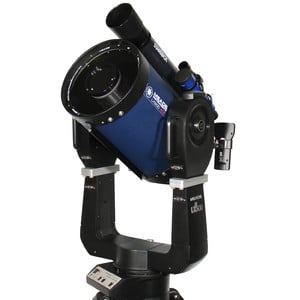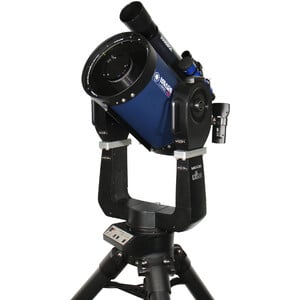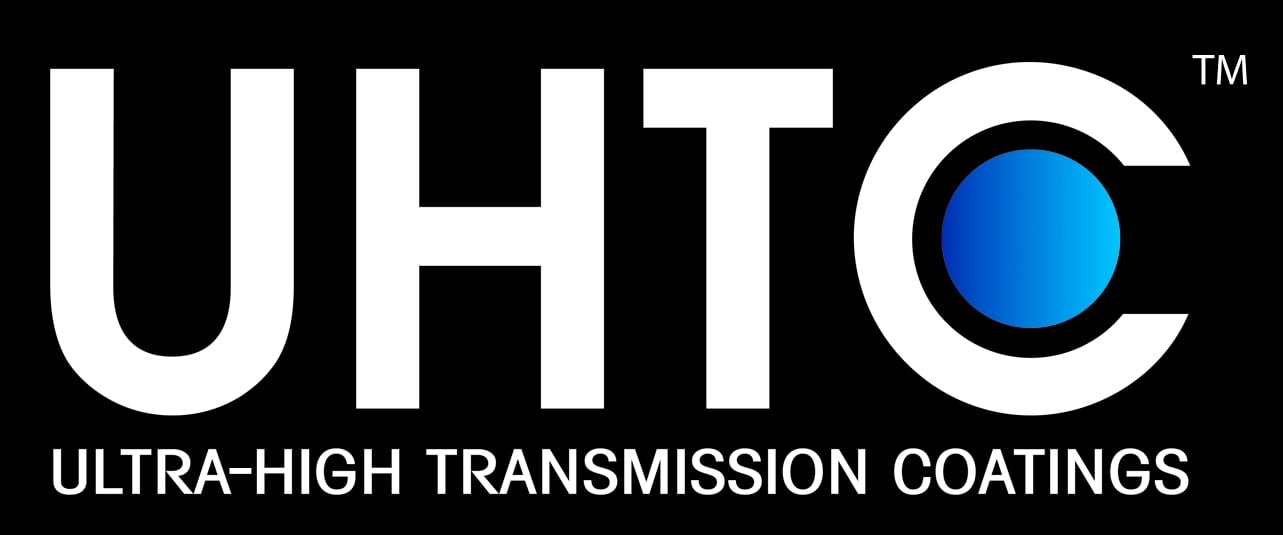Product series:

The LX600 series with StarLock supports both observers on the move and astrophotographers with advanced technology.
This begins with the transport: the short-build SC telescopes sit tightly in their compact fork mount. This so-called split fork can be disassembled for transport.
Setting up the telescope in order to start observing is child's play. Thanks to GPS and Level North Technology, the computer can set itself up almost entirely alone. Then the AutoStar II controller with 145,000 objects is ready for use.
The integrated Starlock camera system supports the exact locating of the desired object, provides an automatic error correction (PEC), and takes over the autoguiding. No external autoguider is necessary!
The LX600 series offers corrected ACF-SC optics with a fast aperture ratio, allowing short exposure times for astrophotography. The internal Crayford focuser with fine adjustment ensures precise focusing with no image shift.

Meade
Telescope ACF-SC 254/2032 Starlock LX600 without Tripod
$ 8,900.00

Meade
Telescope ACF-SC 254/2032 Starlock LX600
$ 10,600.00
Ultra-High Transmission Coatings (UHTC)

UHTC is a special multi-layer coating on the front correction plate and provides up to 15% more light transmission.
The result: brighter star clusters, finer details in nebular objects and more surface detail on planets!
Advanced Coma-free Optics (ACF)

Meade's ACF optical design eliminates the typical aberrations of all mirror optics. Thanks to ACF, the stars are also point-shaped right out to the edge of the image field, displaying no elongated comet-like distortions. This is achieved by employing a hyperbolic secondary mirror, delivering very good images also away from the optical axis.
The image field is flatter than that of classic Schmidt-Cassegrain telescopes.
ACF optical systems show their strengths, especially in astrophotographic applications.
StarLock

StarLock is the revolutionary technology that makes target acquisition (GoTo) on your imaging sensor and accurate guiding during exposures completely automatic. StarLock uses 80 mm f/5 optics and a super wide-angle lens, each with their own camera that immediately captures a field star as dim as 11th magnitude and then guides to an accuracy of one arcsecond. There's no need for a separate guide or a computer.
StarLock automatically handles periodic error correction (PEC).
AutoStar II

Explore the universe with a simple push of a button. Automatically move the telescope (GoTo) to any of the 145,000 objects stored in the object library. For example, planets, objects of the Messier Catalogue, NGC Catalogue and 227 named objects. Take a guided tour of the night sky, tailored for your location and any given night of the year. Access a glossary of astronomical terms.
The AutoStar II handbox fits comfortably in your hand and is easy to use, thanks to the logical structure of its menus.
Meade Smart Drive
As the telescope shows a magnified image of any astronomical object, an astronomical mount must be very precise. Even small deviations may interfere with longer exposure time images. But small fluctuations will always be present as the worm shaft, which is part of the drive, can never be absolutely perfect. These periodic fluctuations can be detected and compensated for by the computer control. Smart Drive technology enables this ‘permanent periodic error correction’ (PPEC).
Meade Smart Mount

The Smart Mount technology improves the accuracy of the telescope's GoTo system. Although the mount is mechanically very rigid, there is still some inaccuracy due to flexing and the changes in mechanical stress that occurs during slewing.
With the help of the Smart Mount technology, the telescope can detect and correct systematic errors when tracking celestial objects, regardless of their cause. This is particularly interesting for fixed-mount telescopes, as the errors there are reproducible.
